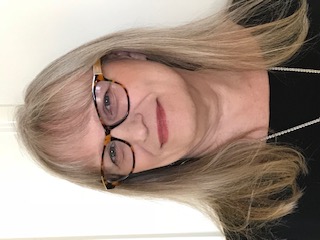
Hi, my name is Susan Wolfe and I am the CEO of Susan Wolfe and Associates, LLC. My company provides evaluation, needs assessment, training, and coalition development focused mostly on health and education equity.
One of the benefits of working independently is that I have control over my professional development. If I see something that is beneficial or that I want to learn, I find the money and resources and do it. I don’t have to ask for permission, ask for the funds, or make sure it fits with someone else’s company goals. So, first, how do I pay for it?
Hot Tip: Do a small job and allocate the money to your professional development, like providing a workshop, editing someone’s report, or reviewing Federal grants.
Evaluation methods and reporting are constantly evolving. I usually keep up by attending the AEA Summer Institute and the AEA Annual Conference. This year, because of COVID-19 those aren’t options. I needed to rethink my plan for 2020. This year I decided to invest my conference travel money in professional development opportunities. For example, I decided to improve my data visualization skills and upgrade my data analysis skills. Since a lot of my work involves health and education equity, I also need to stay up to date on current anti-racism approaches and information.
Rad Resources:
- The AEA eStudies are a low-cost resource. I started this spring with Martha Brown’s eStudy on Becoming a Trauma Informed Evaluator and indulged in Introduction to R with David Keyes over the summer.
- Ann K. Emery’s Depict Data Studio offers several virtual training opportunities. I completed the Soar Beyond the Dusty Shelf Report that was offered for free and it transformed my reports. I liked it so much that I enrolled in her Great Graphs: Design Principles course which is much more comprehensive. Since she uses Excel, improving my graphs isn’t requiring any investment in fancy packages.
- Sheila B. Robinson and Kimberly Firth Leonard’s book, Designing Quality Survey Questions is my new go-to resource for survey design.
- I recommend Ibram X. Kendi’s How to Be An Antiracist. It provides a good knowledge foundation and the understanding as to why being “not racist” is not enough. After that, continue to explore works by Black scholars for antiracism and authors from races, ethnicities, religions, gender identities, and other groups that are not like your own to develop a broader worldview. Read nonfiction and fiction. What am I reading right now? Joy DeGruy’s book, Post Traumatic Slave Syndrome and Ijeoma Oluo’s So You Want to Talk About Race. Need more ideas? Check out Ibram X Kendi’s Anti-Racist Reading List here: https://www.theatlantic.com/ideas/archive/2019/02/antiracist-syllabus-governor-ralph-northam/582580/..
Hot Tip: Finding time to read is difficult. I’ve started taking ½ hour to 45 minutes each morning during breakfast just to read and enjoy my coffee.
I’ve been an evaluator for nearly 35 years. No matter how much I’ve done and all the experience I have, there is always more to learn. Enjoy it!
The American Evaluation Association is celebrating IC TIG Week with our colleagues in the Independent Consulting Topical Interest Group. The contributions all this week to aea365 come from our IC TIG members. Do you have questions, concerns, kudos, or content to extend this aea365 contribution? Please add them in the comments section for this post on the aea365 webpage so that we may enrich our community of practice. Would you like to submit an aea365 Tip? Please send a note of interest to aea365@eval.org. aea365 is sponsored by the American Evaluation Association and provides a Tip-a-Day by and for evaluators.
